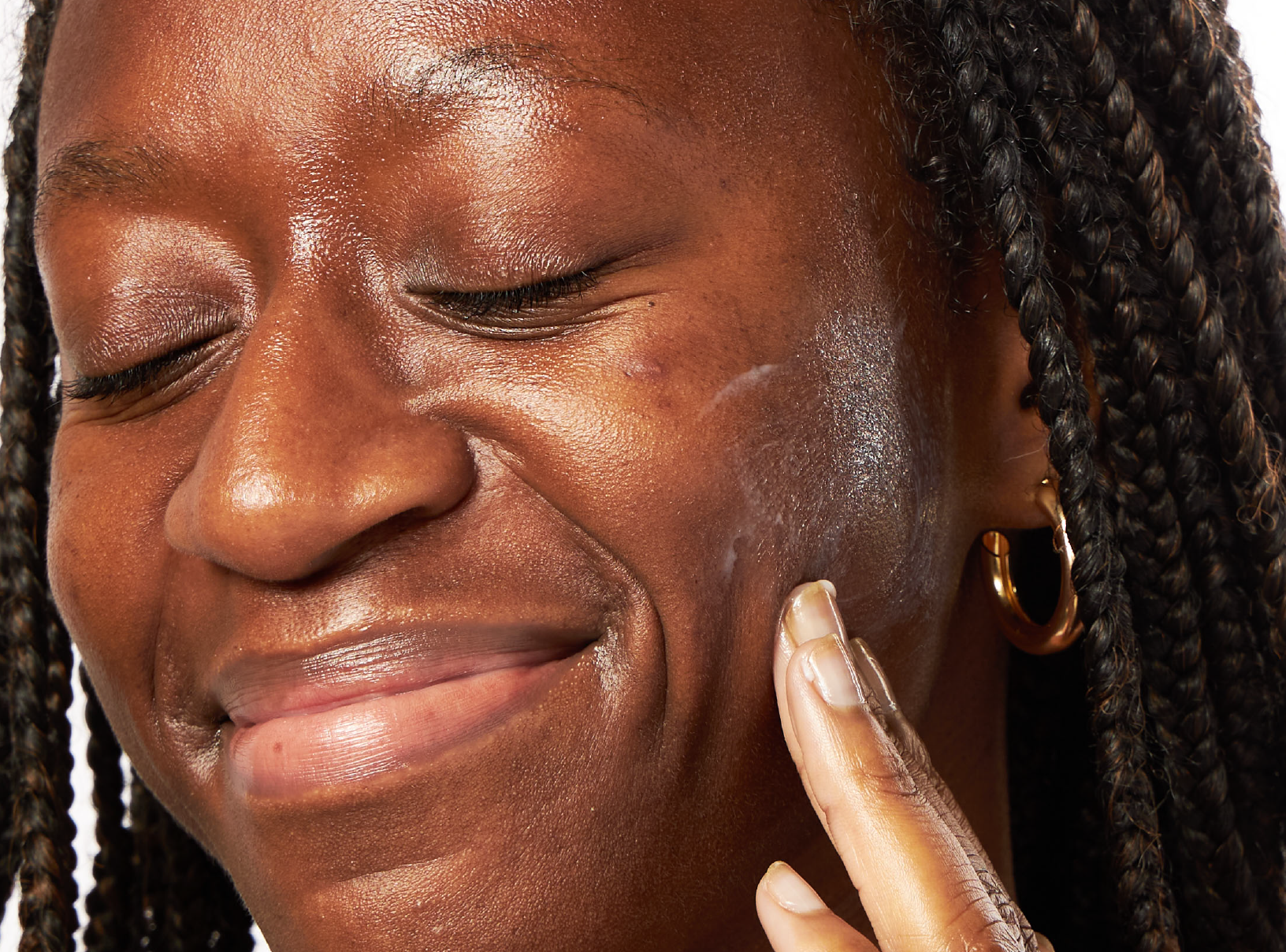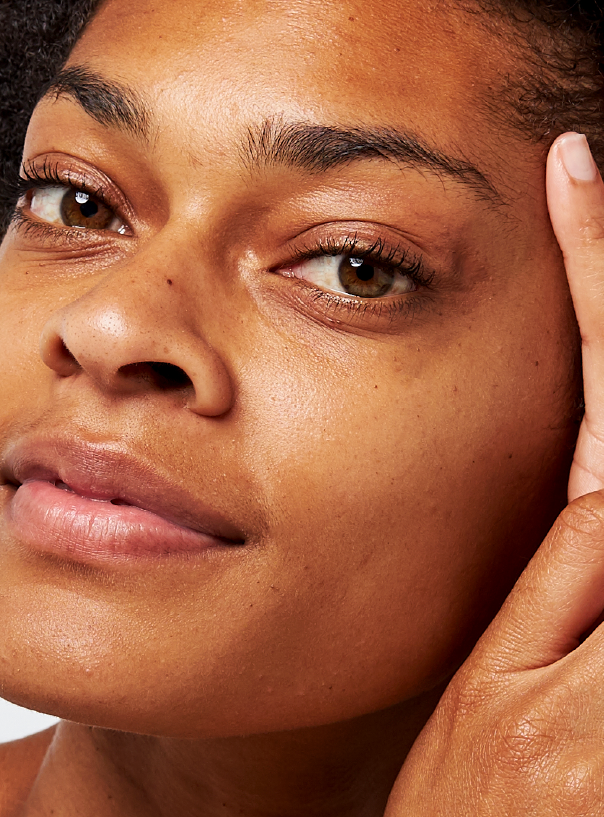Education
Rosacea Triggers: What Causes Your Flare Ups?
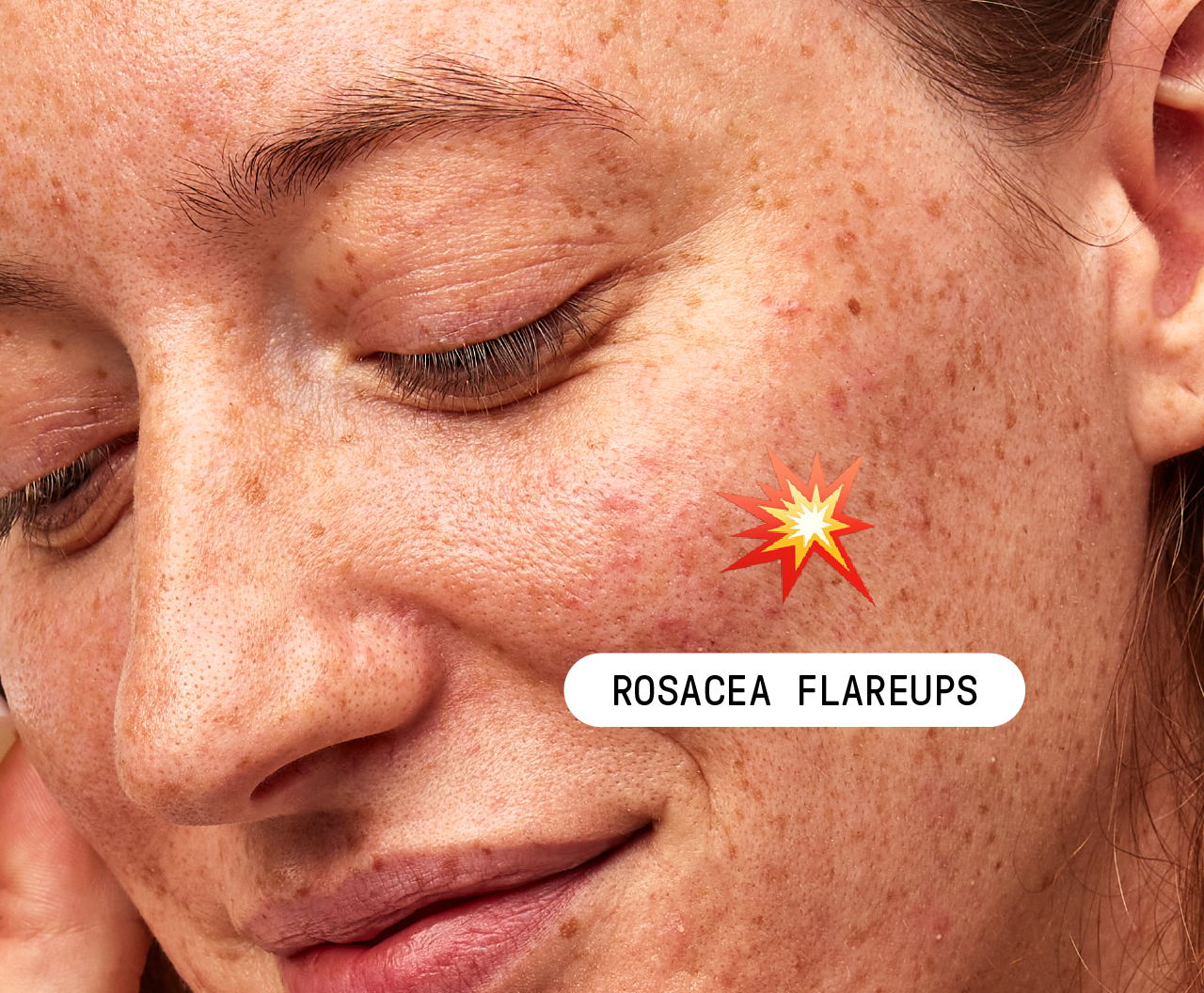
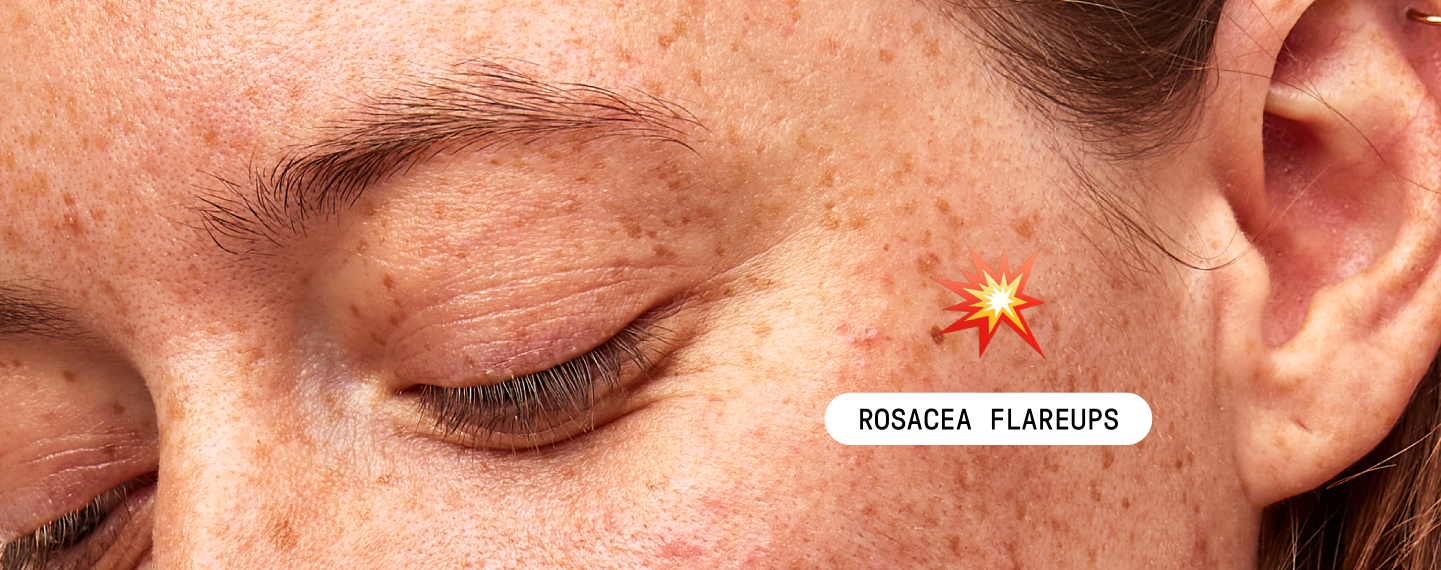
SHARE
Education
Rosacea Triggers: What Causes Your Flare Ups?
Medically reviewed by Aimee Paik, MD
Written by Annie Lam
Last updated 7/3/2022
If you struggle with rosacea, you're likely familiar with rosacea flare ups. Everyone's skin is different and there are a variety of reasons why you may be experiencing flare ups. We'll be talking about different rosacea triggers and how they affect your skin.
What is rosacea?
Rosacea is a very common skin condition that can cause redness, flushing, and breakouts. According to rosacea.org, over 16 million Americans have rosacea. Rosacea can affect people of all skin tones but it's often more easily identified in people with fair skin tones.
The causes for rosacea are still not fully discovered, but the American Academy of Dermatology states that rosacea runs in families, so your genetics may play a part. Another potential cause is the demodex mite. This is a mite that lives on everyone's skin but many studies found that there are a large number of this mite on rosacea patients.
Rosacea Symptoms & Signs
Now that we know what rosacea is and some potential causes, let's talk about some common rosacea symptoms and signs:
Facial redness
Persistent redness is a common sign of rosacea. This facial skin redness is typically centered on the cheeks and nose.
Flushing
Flushing can often occur during a rosacea flare up and it often feels like your cheeks are getting warm like you're blushing.
Visible blood vessels
Another sign of rosacea is blood vessels that appear "broken" or more visible, often around the cheeks and nose.
Sensitive skin
Rosacea-prone skin tends to be very sensitive and can be easily irritated. This is why we recommend keeping your routine simple and being gentle with your skin.
Acne
Some people with rosacea may also experience acne or breakouts as a symptom. These tend to come and go and can appear as small red bumps on the skin.
Skin thickening
A more rare symptom of rosacea is skin thickening. This is typically seen on the nose area and leaves the skin with a bumpy, uneven texture.
As mentioned earlier, everyone's skin is different, so each rosacea sufferer may experience different signs or symptoms.
What are common rosacea triggers?
While there are many factors that could be triggering your rosacea, it's important to note that everyone may have different personal triggers. Understanding your triggers (and getting effective treatment) can help you manage your rosacea.
The National Rosacea Society shared themost common triggers that a survey of 1066 rosacea patients experienced.
Some of the most common ones are:
Heat
Increased exposure to heat can lead to flare ups. This can include hot baths, humidity, indoor heat, hot beverages like coffee or tea, and more.
Sunlight
Sunlight and sun exposure was another common trigger. We recommend keeping your skin protected while outdoors with a sensitive skin friendly sunscreen and protective clothing like a hat.
Spicy food
Spicy foods can also be triggers for your rosacea, likely due to capsaicin, the chemical that gives spicy food their heat. This chemical triggers the "warmth" you feel when eating hot or spicy foods, which can worsen rosacea flares.
Alcohol
Alcohol is another common rosacea trigger. Drinking alcohol can lead to increased inflammation and subsequent flare ups.
Taking note of your rosacea flare ups can help you understand what your personal triggers are. For example, if you notice that eating spicy foods can trigger rosacea for you, you can try to minimize the amount you eat.
How do you treat rosacea?
After understanding the signs, symptoms, and potential triggers of rosacea, let's talk about rosacea treatment. Rosacea is a chronic skin condition, so we recommend checking in with a dermatologist or provider to receive expert treatment for your skin.
Some of the best rosacea treatments are:
Azelaic Acid
A gentle treatment that has anti bacterial and anti inflammatory properties. Since azelaic acid is generally well-tolerated, it's a great option for rosacea-prone skin. It helps to calm redness, reduce breakouts, and it's safe to use during pregnancy!
Metronidazole
A topical antibiotic that can help reduce redness, dilated blood vessels, and breakouts from rosacea. It calms inflammation in the skin and can be used long term to keep skin clear.
Ivermectin
An anti-inflammatory and anti-parasitic treatment that helps to reduce rosacea symptoms like redness and breakouts.
Oral Antibiotics
Oral medications like doxycycline and minocycline may also be used short-term to calm inflammation. For very painful, severe rosacea, these oral medications may be prescribed to help get your rosacea under control quickly.
Get expert treatment for your skin
As you can see, there are a variety of different treatment options for rosacea. Checking in with a dermatologist or healthcare provider will allow you to get customized expert treatment for your unique skin.
Apostrophe makes it easy for you to connect with an expert derm team online. Just fill out a virtual consultation form and share information about your skin care concerns. From there, a board-certified dermatologist will create your first customized treatment plan.
Leave your rosacea treatment to the experts. Get started with Apostrophe today.
Sources:
https://www.rosacea.org/
https://www.aad.org/public/diseases/rosacea/
Shop this post
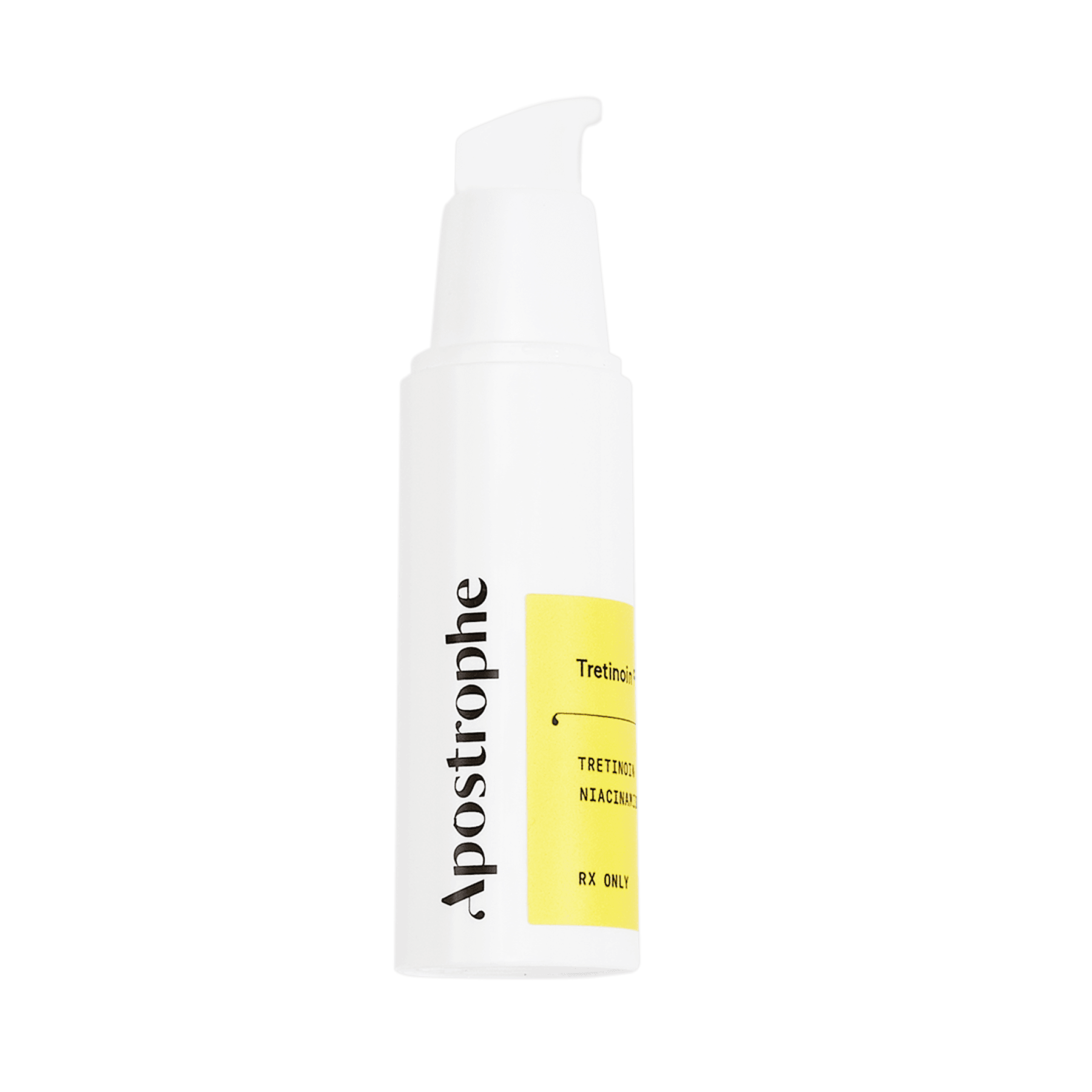
Finacea (azelaic acid)

Metronidazole (Noritate)
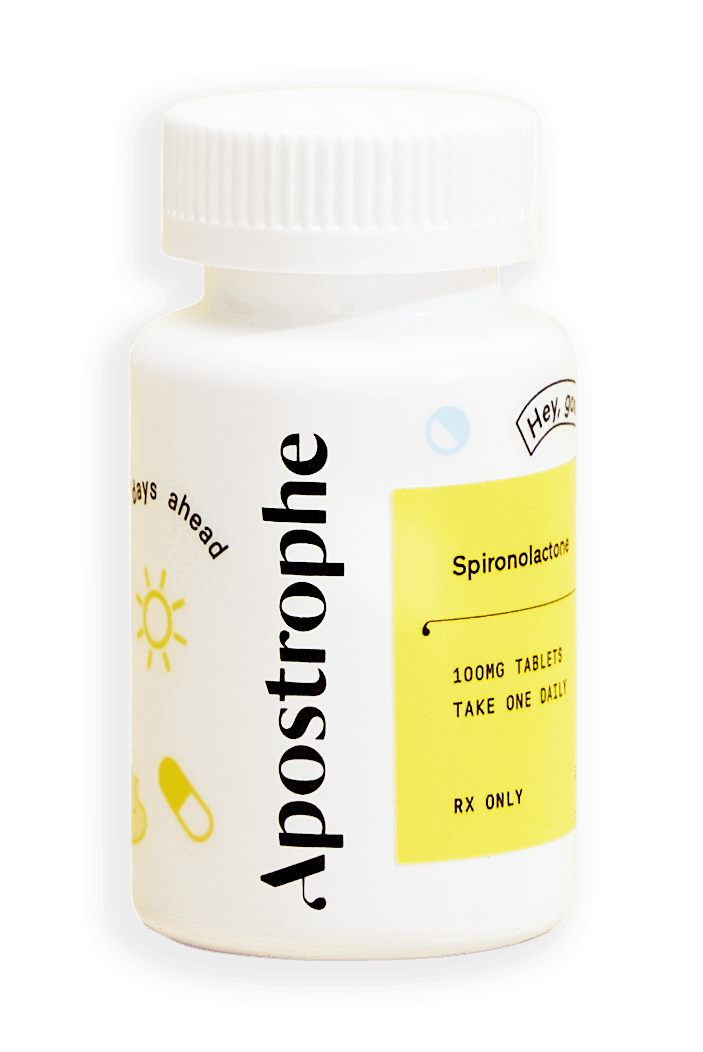
Oral doxycycline

Oral minocycline
Like what you just read? Sign up for our email list to get the scoop on skincare science delivered straight to your inbox.

General
What is milia?
What is milia? Today, we’re jumping into one type of bump that you may have heard about most commonly in infants — milia.
Read More
General
Best moisturizer for acne-prone skin
If you have combination acne-prone skin, figuring out which moisturizer is best for your skin might be tough. In this guide, we break down the best moisturizer for combination, acne-prone skin.
Read More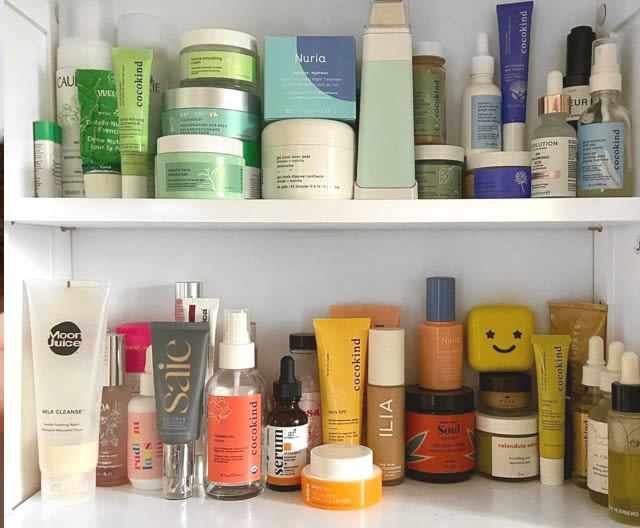
General
How to build a face care routine
As you get into skincare, it might seem overwhelming, especially trying to figure out the order you're supposed to apply products in. Below, we detail how to build a face care routine for your skin!
Read More